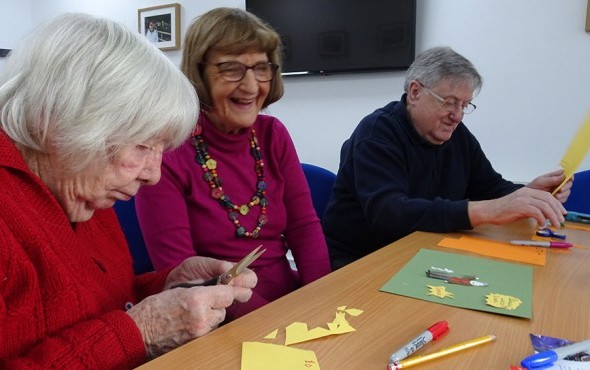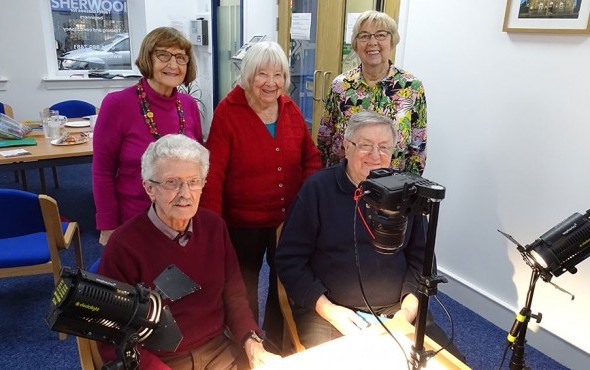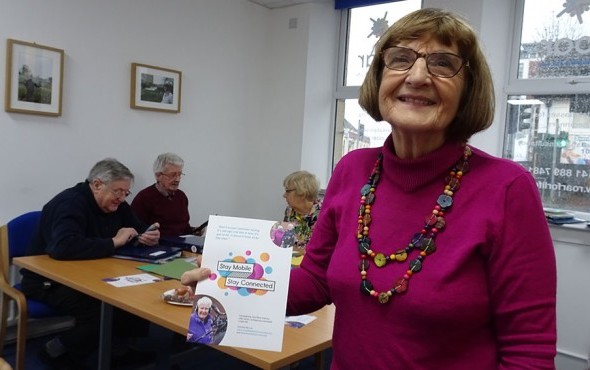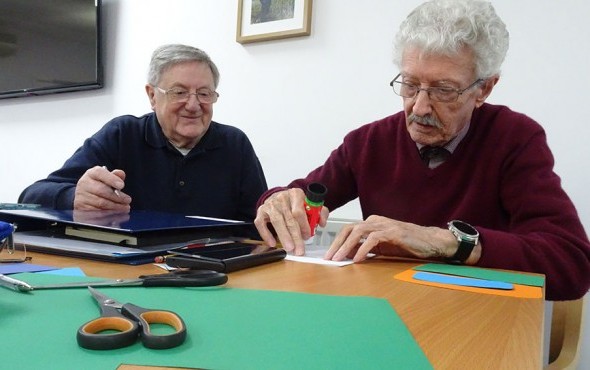Stay Mobile Stay Connected
- Theme
- Home Safety
- Region
- Renfrewshire
- Date Posted
- 14/05/2019
Stay Mobile Stay Connected
Stay Mobile Stay Connected (SMSC) launched in September 2017. Roar – Connections for Life lead on the SMSC initiative, which is a combination of both a national awareness raising campaign and a direct service in Renfrewshire.
Summary
Campaign:
The campaign is supported by a range of national organisations and aims to challenge the public perception that falls and loneliness are an inevitable part of ageing, to highlight that this harm and injury is preventable and to promote solutions designed for older people by their peers.
Service:
The SMSC service is a non-medical response to helping older people reduce their risk of preventable falls and loneliness through home based assessment, re-enablement into the community and social activities. This approach is focussed around the person’s core challenges as they perceive and experience them. Partners of the direct service include Scottish Fire and Rescue Service (SFRS), Care and Repair Renfrewshire, Renfrewshire Health and Social Care Partnership and Renfrewshire Council
Need for Initiative
SMSC has evolved over the past 6 years as the original cohort of people attending our social groups began to experience decreasing mobility, confidence and frailty issues and were increasingly unable to take part in community opportunities. Despite doubling our befriending service to support more people at home, this was still not sustainable to meet demand – and we identified that many people still want to get out. Roar works closely with Glasgow Caledonian University’s School of Active Aging towards developing and achieving a model of prevention. For falls and loneliness we work with NHS Falls Services, who provide people with help after a fall. As the population continues to age it is Roar considers that it is crucial that a prevention model is established and achieved to lessen the burden on health services. Roar also sits on the Expert Advisory Panel for the National Falls Prevention Strategy
Various operational strands and projects already existed as part of Roar for Life before SMSC. This includes the Roar Do Feet social enterprise, the Feet, Falls and Fire Project (working in partnership with Scottish Fire and Rescue Service) and the #StopFalls1st model. Working with older people in communities we identified the correlation between decreasing mobility, be that physical, social, cognitive, digital or logistic, with decreasing connectedness to the community. In 2018 we merged all of our operational and strategic activity to maximise the success of both the campaign and in developing our unique SMSC service working towards getting people back on their feet and out into their communities and staying connected for longer.
Aims and Objectives
Roar’s aim as a charity is the reduction of loneliness and isolation in older age. SMSC is the approach taken to achieve this and has a number of objectives. These include:
- more older people engage with activities that promote mobility and increase strength and balance;
- have access to social opportunities that enable them to connect meaningfully with others;
- have access to opportunities that stimulate cognitive ability, concentration, lifelong learning and relevant wellbeing advice and guidance;
- are able to access support to learn about technologies and resources that they can use to maximise their wellbeing and independence;
- more older people are able to access information, support and services that maximise their ability to stay logistically connected.
The campaign also aims to make more people aware that falls and loneliness can be avoided or reduced in older age.
Delivery
Campaign:
A number of activities take place as part of the SMSC national campaign to ensure that it has maximum reach and impact. These include campaign films and animations co-produced with older people, campaign champions delivering talks/interviews, a nationwide social media campaign, local leafleting, events, conferences and engagements with national bodies.
Service:
The SMSC service has a clear process for delivery, which is tailored to best suit each individual. This consists of a referral and assessment, planning and tailored re-enablement and direct support, tracking of progress and encouragement, signposting or assisting to access local opportunities, outcome monitoring and ongoing maintenance to ensure the service has a lasting positive impact.




Successes and Challenges
Successes:
- The initiative is an example of partnership working that is working well in practice.
- There has been a growing trust, positive feedback and increased referrals from GPs and discharge hospital wards.
- There has been joint local authority and HSCP approval for a local Community Unintentional Harm Group with shared governance and work plan to focus on falls and loneliness reduction.
Challenges:
- Creating partnerships and ensuring governance, resources and vision are aligned to maximise early intervention and prevention.
- Ensuring consistency in messages to older people from different sources.
- Being perceived as a threat by other organisations and ‘competing’ for a place in a market dominated by statutory agencies.
Impact/Change
Campaign:
The SMSC campaign was launched in February 2018. The films, social media and leaflets have reached thousands, helping influence strategic changes and encouraging people to look differently at solutions to falls and loneliness.
Service:
The SMSC service commenced in April 2018 and has delivered 234 home visits (as at February 2019). Feedback received has indicated that the service has transformed the lives of those we have helped to take the steps, physically or emotionally, to get back out into the community. In 2019, we will explore more robust evaluation models and will make contact with Evaluation Support Scotland.
Reflections
Developing SMSC is an iterative process, the key to which has been to work co-productively with older people, collaboratively with key partners and flexibly within the changing political, strategic and funding environments that exists. The barriers to making a much more tangible shift to prevention and early intervention can become overwhelming and demotivating. We eagerly anticipate the publication of the Older People’s Framework and Falls and Fractures Prevention Strategy in 2019, with a hope that models of early intervention and prevention of falls and loneliness will be invested in and rolled out nationally.
Additional Information
Please follow the links below to find out more about each of these strands of work:
Author and Contact Details
Nicola Hanssen
General Manager
T: (0141) 889 7481
W: www.roarforlife.org
E: nicola@roarforlife.org
Roar – Connections for Life is a Company Limited by Guarantee
Co. number: 390855, and a registered Scottish Charity, No: SC042041